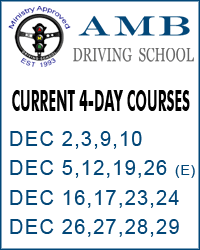Canadian teens’ performance in global high school test scores declines, this generates more concerns
Canadian teens did well on an international math, reading and science test — but scores in all three subjects have declined over the past two decades, according to a new global ranking released Tuesday.
The latest results of the OECD’s Programme for International Student Assessment – the so-called PISA test written by 15-year-olds – paints a troubling picture here and in other developed nations.
“While it is evident that some countries and economies are performing very well in education, the overall picture is more worrying,” wrote OECD Director for Education and Skills Andreas Schleicher in a report about the PISA 2022 test, which focused on math.
2022 PISA scores across Canada
Compared to 2018, Canada’s 2022 mean performance was 15 points lower in math, 13 points lower in reading and 3 points lower in science.

“In more than two decades of global PISA tests, the OECD average score has not changed drastically between consecutive assessments. But this cycle saw an unprecedented drop in performance.”
In an interview with the Star, Schleicher said while COVID-19 played a role, the downward trend in some countries, including Canada, started before the pandemic. Factors include a general decline in perceived teacher support and the “extensive use of technology for leisure.”
This is the first large-scale study to collect data on student performance, well-being and equity since the pandemic-related disruptions resulted in school closures and the pivot to online learning. The tests also reveal how Canadian teens fared in each province. Ontarians performed above the national average in reading and science, but not math. Alberta was the only province to score above the national average in all three subjects.
Canada is one of 38 members of the Organisation for Economic Co-operation and Development (OECD), which represents developed nations. In 2022, nearly 700,000 students in 81 participating countries and economies did the math-focused test, representing 29 million 15-year-olds. In Canada, 23,073 students in 867 schools participated, representing 357,900 teens that age.
Canada was above the OECD average in all subjects, ranking fourth in science and fifth in math and reading. When compared with all participants, Canada ranked in the top 10 in all subjects. Singapore was number one in all areas.
Ontario Education Minister Stephen Lecce, who is the chair of the Council of Ministers of Education, Canada, said “overall, it’s a very positive reflection” of what’s going on in classrooms across the country.
Ontario, he added, is in the top 10 internationally, which shows the province’s back-to-basics strategy is working, along with investments in literacy and numeracy supports such as a math lead in every school board and early reading screening for primary schoolchildren starting in senior kindergarten.
“All of this, together, leads us to a better outcome,” Lecce said at Queen’s Park. “So it’s promising, but a recognition that we’ve got obviously more work to do to get these kids back on track.”

Although Canada ranked high, its scores have trended downward, as have other countries’ around the globe. Compared with 2012, the proportion of students here scoring below baseline proficiency (Level 2) increased by seven percentage points in math, seven percentage points in reading, and four percentage points in science.
“If you do not reverse that, it’s just going to continue,” warned Schleicher, pointing out that Finland took top spot in 2000 and everyone looked to it as a model education system. “Now, (Finland) is an average performer. They have been very complacent.”
He told the Star that Canada could do better with “a curriculum that is more ambitious and has high expectations for students,” adding there has been a tendency in recent years to “sacrifice rigour” in order to please students. But he notes that “student well-being and academic rigour often go together.”
“We have to just teach fewer things at greater depths,” he said. “In Canada, students often are good at the first layer of a problem, but they do not have the deep conceptual understanding” to get at the heart of a math problem.
Lecce said the global decline is “a reminder that learning loss had significant impacts on children and it’s why the government is really working hard to keep kids in school” by reaching tentative deals with the two largest teacher unions to provide “that stability and strength.”

Schleicher also recommended that teachers invest more time in their relationships with students so they feel supported. He was “surprised” that when kids switched to online learning due to school closures, just 13 per cent of Canadians reported being asked daily, by someone from the school, how they were feeling.
“That’s a striking number,” he said. “During the pandemic, caring for your students was perhaps even more important than giving them homework.”
Ontario students were out of class and learning online, about 27 weeks, which was more than many students around the world.
In the 2022 test, 78 per cent of Canadian students attained at least Level 2 in math — considered a basic level of ability — and the average across OECD countries was 69 per cent.
About 12 per cent of Canadians were top performers in math, reaching Level 5 or 6, while the OECD average was nine per cent.
In reading, 82 per cent of Canadians attained at least Level 2 — the OECD average was 74 per cent.
In science, 85 per cent of Canadians reached Level 2 or higher compared to the OECD average of 76 per cent.
Many Canadian teens reported studying math in unfavourable conditions. About 21 per cent can’t work well in most or all lessons; 29 per cent don’t listen to the teacher; 43 per cent get distracted using digital devices; and 33 per cent are distracted by other kids’ devices.
“We live in times where mathematics is as important as never before,” Schleicher told the Star. “If you do not understand an exponential function, you’re not going to follow the debate on climate change. If you can’t deal with probability statistics, you’re not going to understand a pandemic or why you should or should not take your vaccination. So math is everywhere these days — it’s not just for the engineers.”
This article was reported by The Star
















